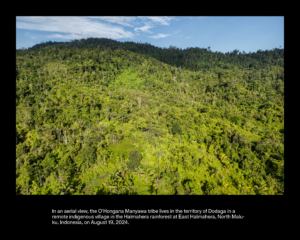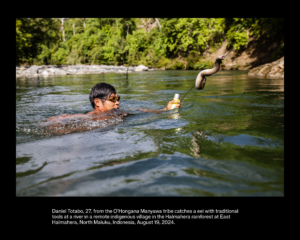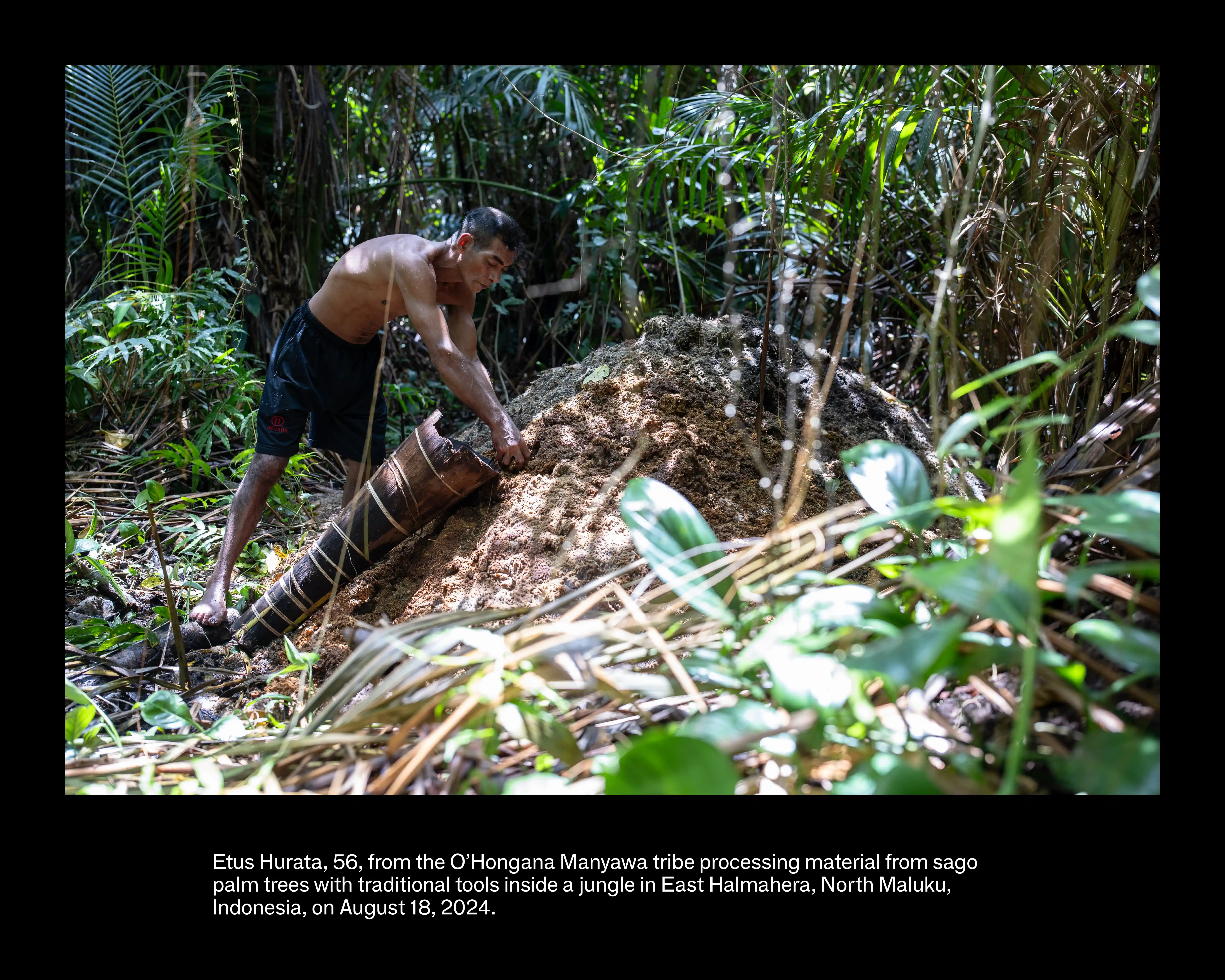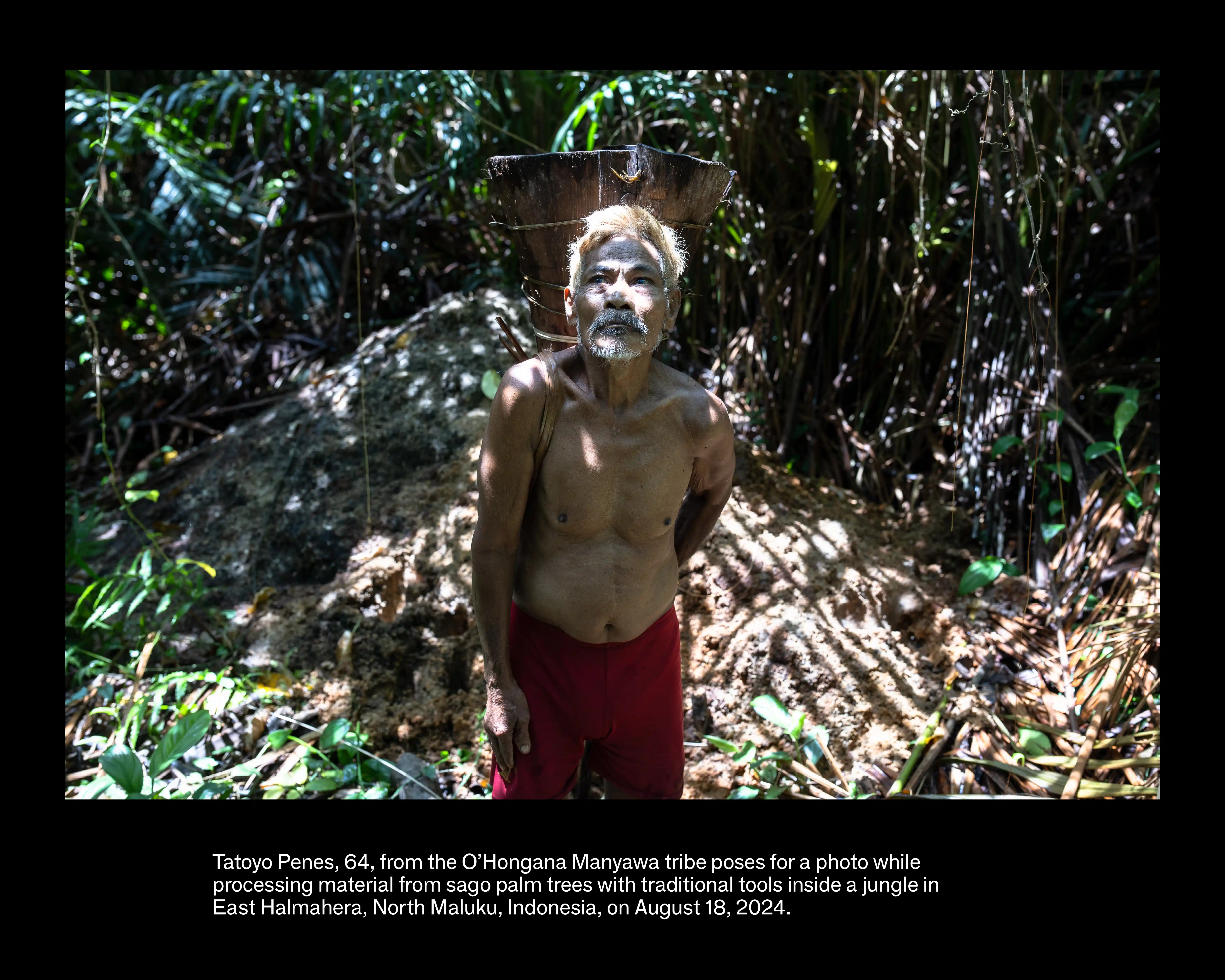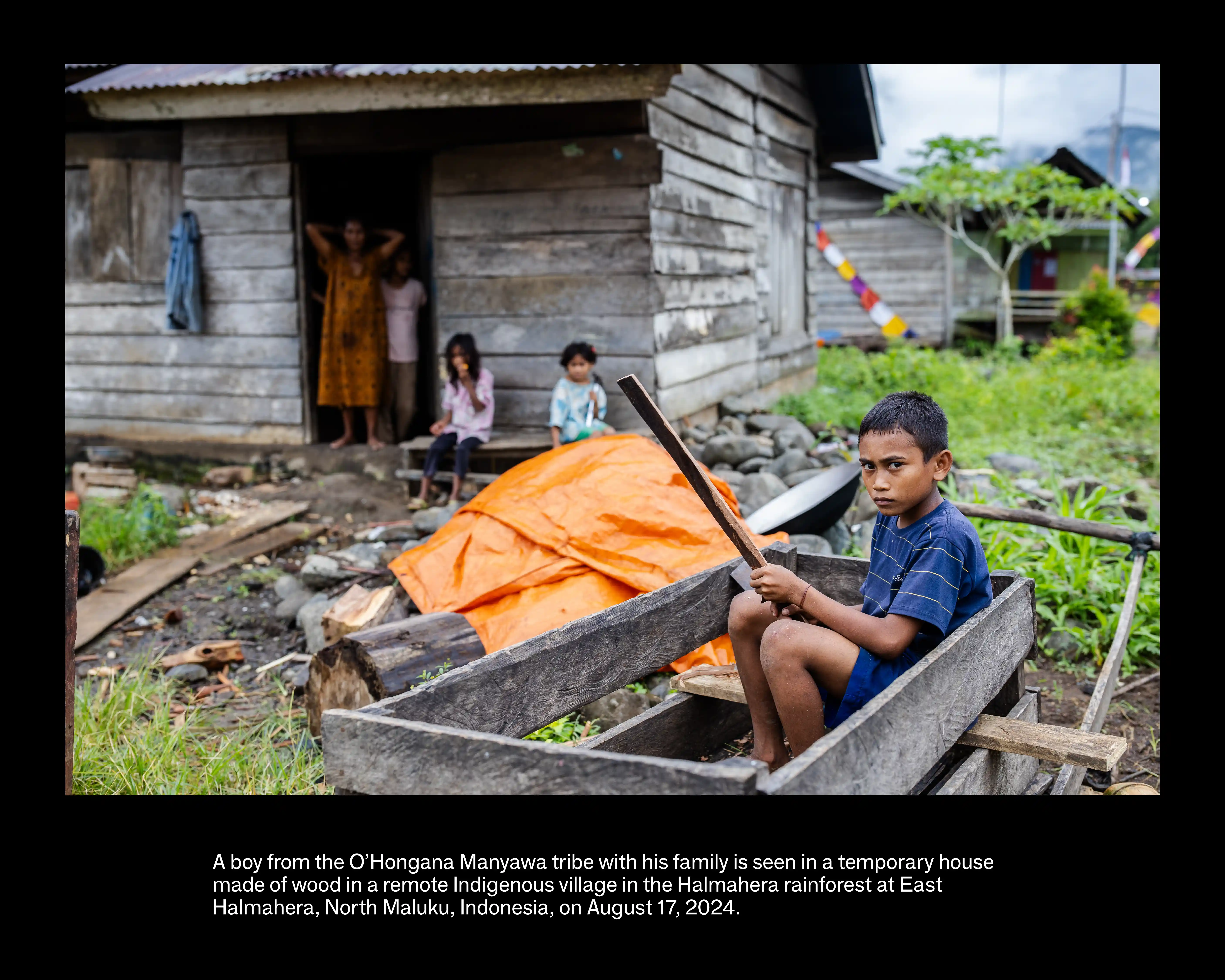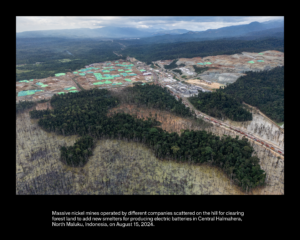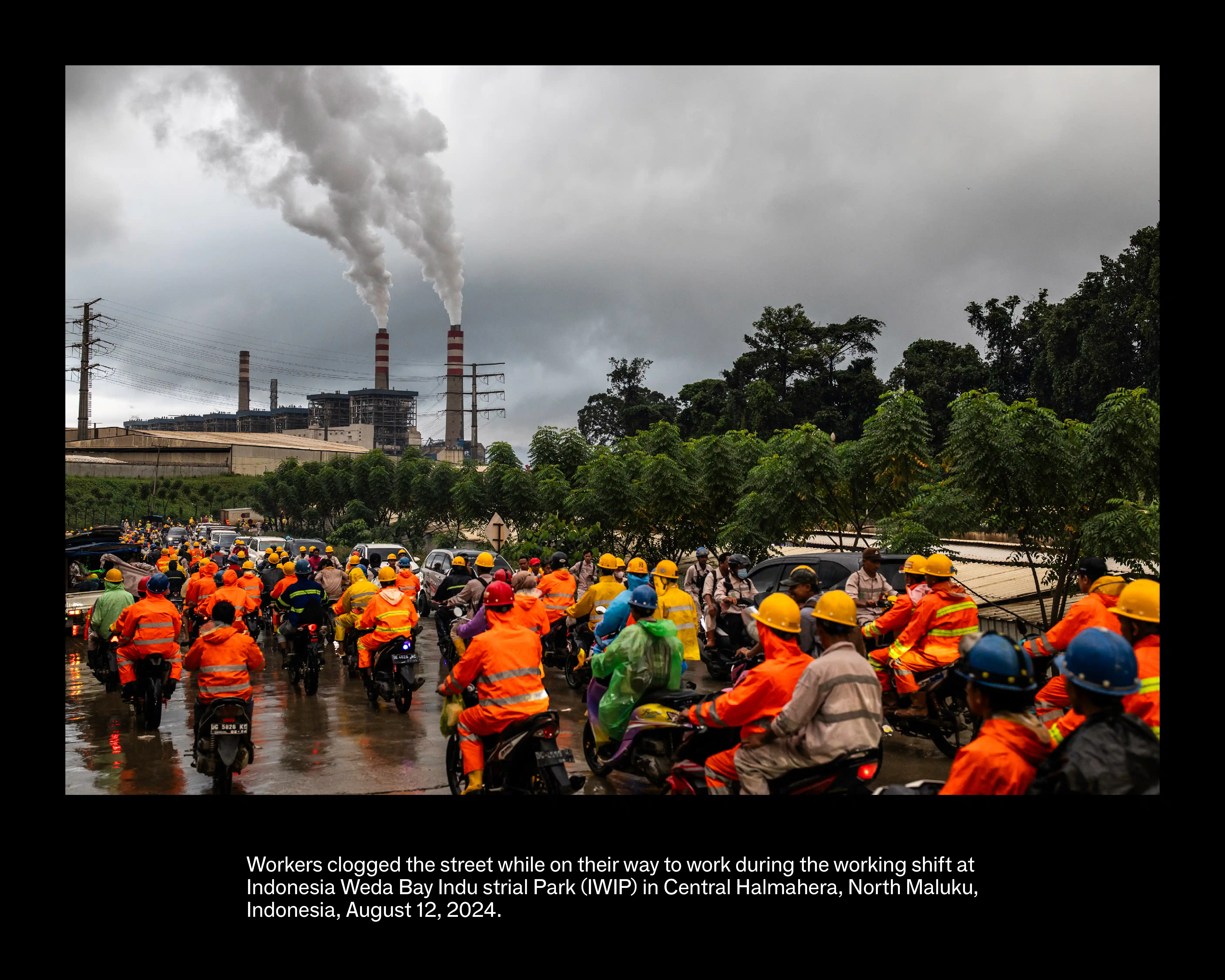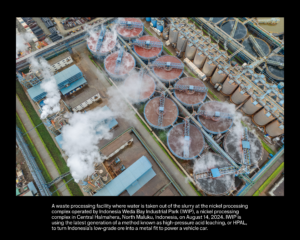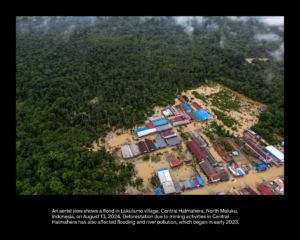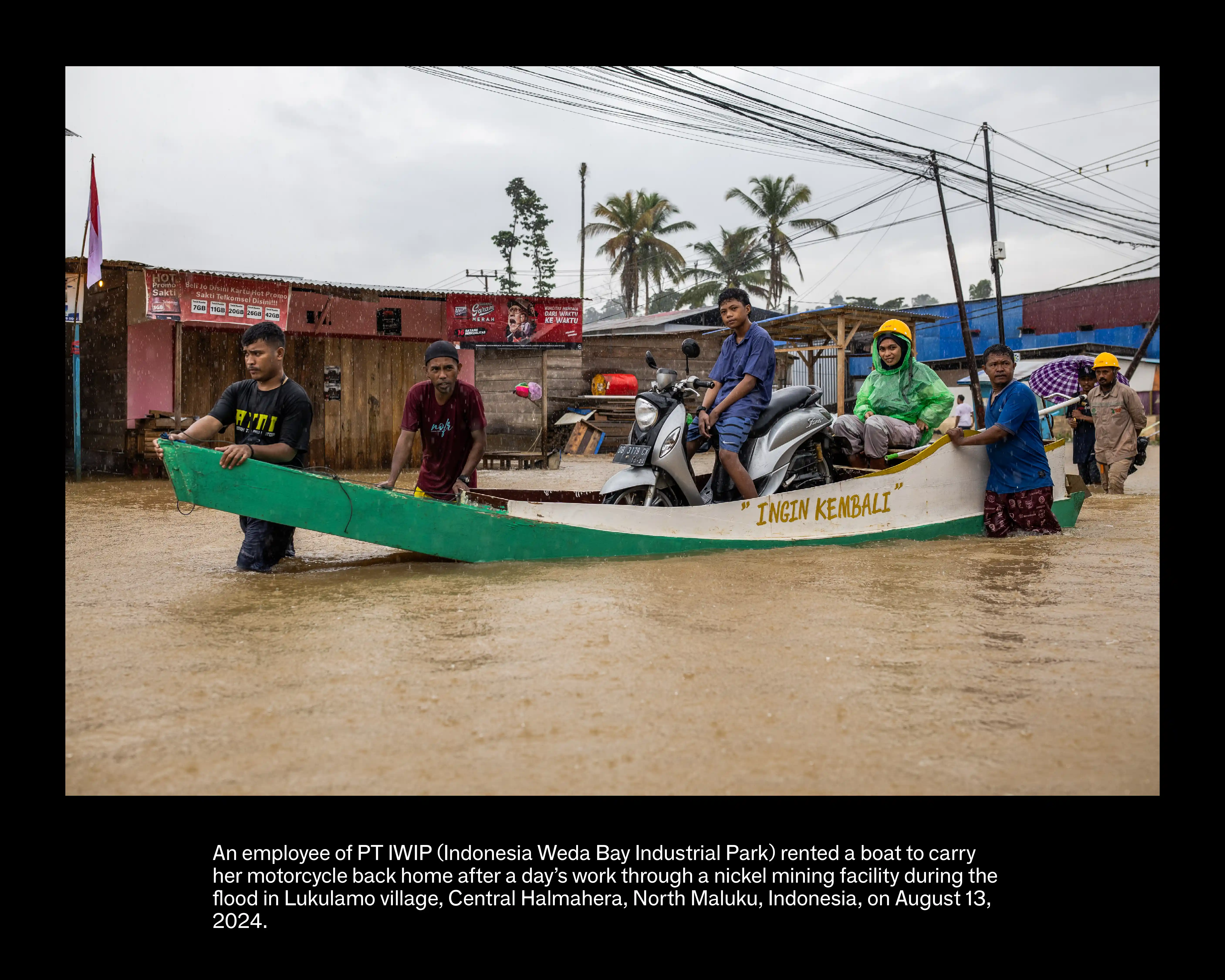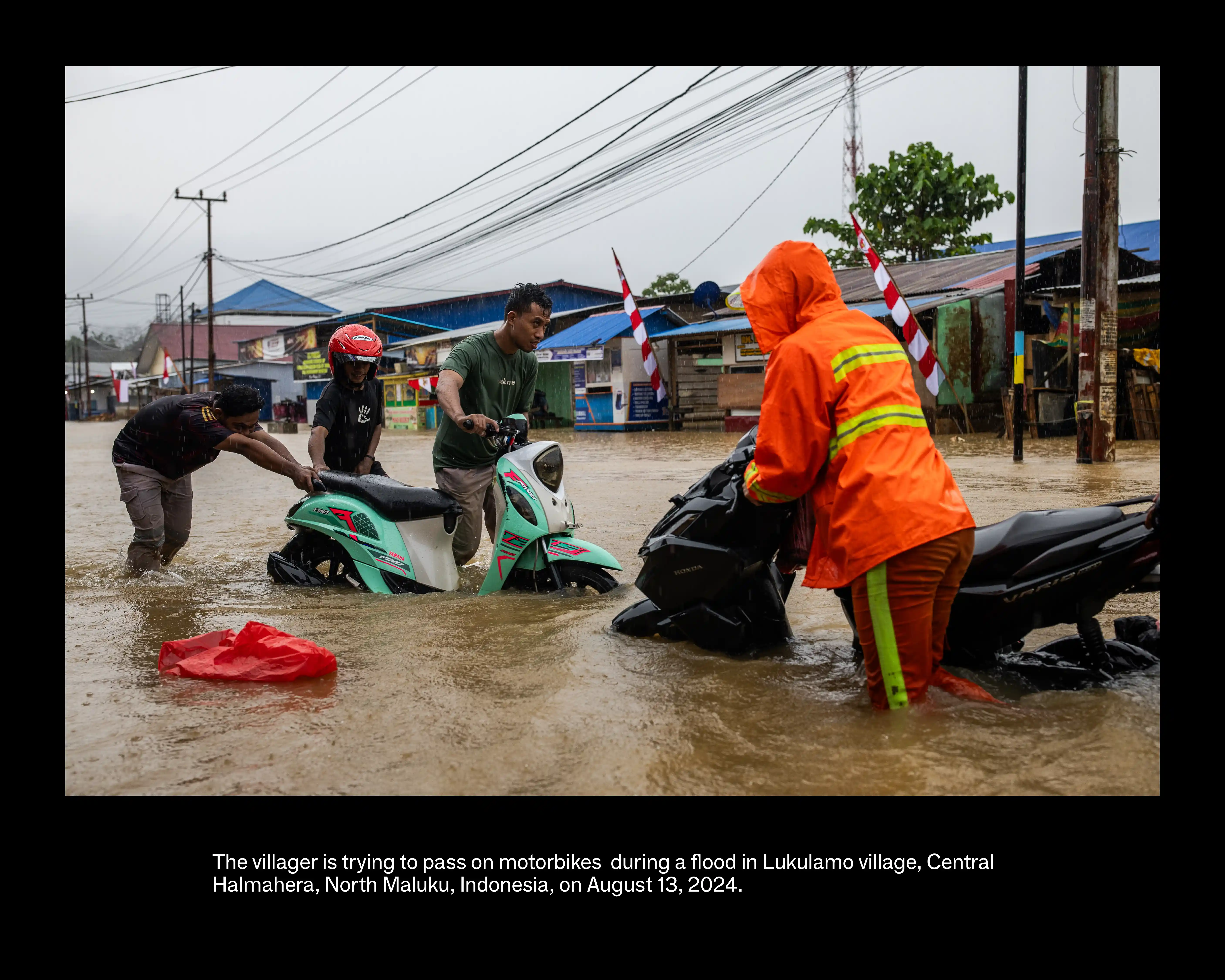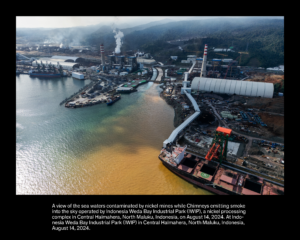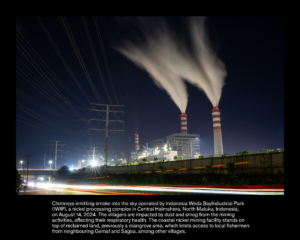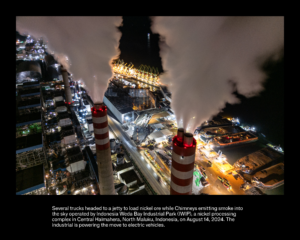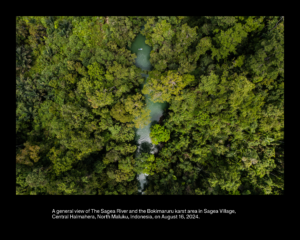The global demand for nickel—driven by the rapidly growing production of EV batteries—has transformed Halmahera, Indonesia into a mining hotspot.
Industrial operations, spearheaded by multinational corporations, are rapidly encroaching on the O’Hongana Manyawa’s ancestral lands. These activities have destroyed thousands of hectares of tropical forest, displaced indigenous communities, and exacerbated environmental and health crises.
The photo project explores the complex realities faced by various local communities as they seek better livelihoods through the development of these rapidly growing industries while simultaneously confronting ecological degradation.
Industrial operations, led by multinational corporations, have destroyed over 5,300 hectares of tropical forest, releasing approximately 2.04 million metric tons of greenhouse gases previously absorbed by these ecosystems. Massive deforestation in upstream areas has led to an increase in floods and landslides, with devastating consequences for local communities. From August 2020 to June 2024, floods more than a meter high occurred at least 12 times, destroying homes, livestock, and essential infrastructure.
“I may be used to these conditions but, I still want to live a healthy and better life.”
Mining activities have also reshaped social dynamics, further marginalizing indigenous and local communities. The privatization of rivers, such as the Sagea and Kobe, to meet industrial water demands has left residents without access to essential resources, threatening their livelihoods and daily survival. In protest, villagers have repeatedly called on the government to halt mining expansions and restore river ecosystems. Meanwhile, mining workers face grueling conditions and significant risks, with over 42 fatalities recorded in the IWIP industrial area between 2018 and 2024, alongside a sharp increase in work accidents.
Amid these challenges, hope has emerged in the form of proposed “no-go zones” for mining. Tesla’s 2023 Impact Report, published in May 2024, referenced consultations with policymakers, non-profits, and industry stakeholders to explore mining-free areas that could safeguard the rights of uncontacted indigenous groups like the O’Hongana Manyawa. However, while the report outlined a commitment to considering these zones, no tangible progress has been made. Meanwhile, Tesla continues to source approximately 13% of its nickel from Indonesia, citing the critical role of the metal in the global energy transition.
“I may be used to these conditions,” says 62-year-old Ahmad Kruwet, “but I still want to live a healthy and better life.” His sentiments emphasize the importance of an inclusive reflection on the true cost of progress as countries of the Global North secure the resources necessary for an just transition.

